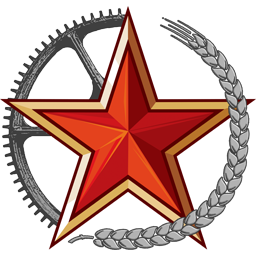"How good life is for those who give Magnificent names for their insignificant Activities and even hobbies, And gives it to humanity, Like grandiose feats in the name of Their benefit and prosperity. Goethe "The Sorrows of Young Werther”.*
Igor Chubais proposed to introduce a new subject into the Russian educational system – “Russian Studies”. This is a wonderful idea that includes various aspects of life in Russia: history, culture, geography and much more. It is important that people know about their country, but creating textbooks on the subject can be a challenge. Thinking about a neutral, objective history over the next 30 to 40 years is complicated, given the different views and influence of ideologies.
The example of the introduction of the novel “One Day in the Life of Ivan Denisovich” into the educational program as an educational material on history is of interest. This work had a strong impact on Soviet society, showing what was happening in the camps and prisons of the country, which was hidden from many. Such stories opened our eyes to the reality of past decades. For example, the story of the sculptor who carved a bas-relief of Stalin in Siberia while he was freezing on a rock also introduced us to the reality of life at that time.
The idea of including such materials in the educational system can help to understand complex periods of history, but the creation of objective textbooks will be a challenge because of the influence of different points of view on historical events.
The public strongly opposed Khrushchev’s proposal, and it was not accepted. Of course, it is important for the younger generation to know the dark sides of our history. I grew up in that time and know all the difficulties of the period of the “dictatorship of the proletariat,” but was there really nothing bright in the past? The Soviet people, even in difficult times, created a base for our state, which made it possible to produce weapons for the front during the war. And there was the heroism of the Soviet people that made the victory possible.
Mr. Chubais’s proposal to exclude the years of Soviet power from the history of Russia sounds interesting, but it is difficult to simply throw out history, since it is ambiguous. To hear such an offer from a Communist with 15 years of experience seems strange, given that he was educated in the Soviet system of history and philosophy. A certain discrepancy can be seen if, while rejecting Soviet power, he must renounce his education and academic degrees, which, moreover, he received with the support of the Soviet system.
As a historian, it is sometimes difficult for me to understand why some scholars consider Tsarist Russia to be a veritable paradise for the population. I’m not going to argue the opposite here, but I’d like to advise these ultra-patriots to read more of the classics of the 19th century. It describes real life. None of the classics was a communist like Chubais. Having read the works of Gogol, Chekhov, Kuprin, Leskov (not to enumerate for a long time), you can be convinced that life at that time was far from sweet. Especially for the serfs, who after liberation were left without land and again found themselves under the rule of landlords and nobles. By the way, Lieutenant or Cornet Obolensky was not a serf – such titles were not given to serfs in tsarist Russia. Let me remind you of Lermontov’s words concerning the supporters of tsarist power: “Farewell, unwashed Russia. A country of masters, a country of slaves. And you, the blue uniforms, and you, the obedient people.” It seems to me that there is no need to comment. The simplest remark is that a people who are clothed, fed, and satisfied will not go to revolt and revolution. That’s a fact.
In 1991, the Soviet government collapsed because it failed to provide people with food, clothing, shoes, and good household appliances. It all comes down to one question: How do I live? If I live well, I love the current government, if my life is bad, I hate power. Therefore, the period of Soviet power should not be excluded from history, but on the contrary, it should be studied well. After all, even then we worked, defended the Motherland, and achieved success in space. Our country was not considered a third world country, as it is now. Therefore, it is necessary to pass on to our children not only Ivan Denisovich, but also the good, patriotic and advanced things from the Soviet past, so that they are proud of the achievements of their ancestors. This is the basis of patriotic education.
Mr. Chubais argues that it is impossible to be a patriot of North Korea and South Korea at the same time. Although, as a people, they are united. On this twist, he concludes that it is impossible to be a patriot of Russia and the USSR at the same time. Maybe Mr. Chubais doesn’t understand that you can’t be born and grow up in North Korea and South Korea at the same time. Well, that’s a common trick of the masters of idle talk.
I can say that I have loved my homeland since childhood, and I love it now. I love the Motherland, not the political system. And if necessary, I am ready to serve my Motherland as conscientiously as I served during the Soviet period. Once again, I served the motherland, not the political system. And love for one’s people, for one’s homeland should be the leitmotif of all our actions and our national idea.

